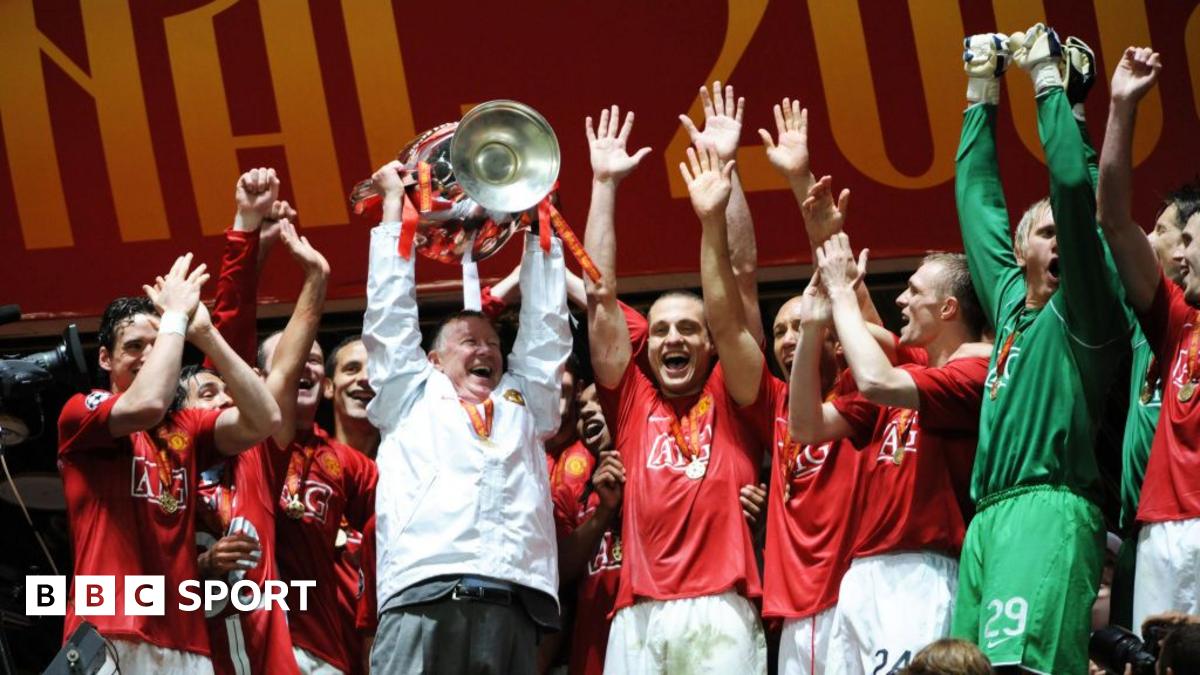June 2004. And Ferdinand is in another United dressing room hearing a speech showcasing another quintessential Ferguson character trait.
There are no tears this time, however.
Rather than losing his head and delivering the hairdryer, this time Ferguson was showing his bullish side.
An unwavering belief that he could, and would, rebuild the Reds – even in the face of the self-titled Special One.
“When Jose Mourinho came in to Chelsea in the summer of 2004 there were rumours that I and various other players might be leaving,” Ferdinand remembers.
“But he was like, ‘listen, we’re going to build this team and you’re going to be one of the main parts of it’.
“He was like, ‘just stay with me’. And he’s probably the only manager at that time in the world that I would have listened to like that.
“He said, ‘just trust me. I don’t get things wrong often when it’s football. Stay with me and we’ll get this right’.
“I was just like, ‘I’m there. I’m behind you, I believe in you.'”
Also on board in June of that summer were two men who were to have a huge impact on that 2008 Champions League triumph.
The first is a headline name.
A once-in-a-generation English talent hot off the back of a breakthrough Euro 2004.
A young forward by the name of Wayne Rooney whose transfer garnered headlines and newspaper column inches galore.
The second was an unheralded second coming. The return of Carlos Queiroz to the United fold as Ferguson’s assistant manager following an unsuccessful spell at Real Madrid.
Mourinho’s arrival in the Premier League, despite the Portuguese’s “Special One” proclamations, wasn’t all about him.
It was part of, and the start of, a wider internationalisation of the Premier League.
This was, in part, defined by the likes of Chelsea owner Roman Abramovich bringing an influx of money, and the resultant hike in transfer fees and wages. But it also saw the Premier League – and its managers – needing to embrace the global game.
Rooney was a precocious English talent from Croxteth in Liverpool who did his talking on the pitch. His impact, once he’d recovered from his broken foot at the Euros, was immediate.
In your face, in the goals and in the headlines.
Queiroz was the Portuguese assistant manager who spoke a handful of languages and, in time, would prove to be a crucial bridge between Ferguson’s east-end Glasgow roots and an increasingly cosmopolitan squad.
“At the time I came to the club, the Premier League and Man United was not that international,” former Serbia defender Nemanja Vidic told BBC Sport’s new documentary ‘Sir Alex’.
“Carlos was so smart,” ex-England midfielder Michael Carrick, another of Fergie’s signings during the pre-Moscow rebuild in 2006, added.
“He would take the coaching pretty much every day really, and lead the week and maybe a little bit more on the tactical side. He was quite dry at times, but focused and good at what he did. And he balanced off the boss particularly well.”
Prioritising speed – especially in attack – was key for Ferguson as, step-by-step, the rebuild on the road to Moscow started to take shape.
“Wayne and Cristiano had a massive impact, for sure,” Queiroz says. “It was part of that change that we had to bring in more speed to reduce the reaction time for our opponents. No doubt, those two kids, they changed completely the environment of that club.
“Sir Alex and I always used to think we’d be the first people at training. But, when those kids Cristiano and Wayne arrived at the club, they were there before us.”
Rooney and Ronaldo were part of Ferguson’s gift for reinvention that also included recruitment, with a specific brief: to bridge a gap between the Premier League and European football.
“Sir Alex said to me “I’m looking for someone who can bring me more information about European football,” Queiroz said.
“Someone who can communicate in different languages because in those days Manchester United started to have Spanish players, French players etc.
“My skills to communicate in those languages were good and then also we had the shift from Sunday to Tuesday.
“English football and culture on Sunday – I attack, you attack. Then on Tuesday in European football it is sometimes, wait and see. It is important to create traps. To wait, and catch opponents in their weaknesses.
“In England it was ‘I do my best, you do your best, and we’ll see’. But when you play Italians, when you play Spanish teams, it was not the same approach.
“When Sir Alex and I were having these discussions it was a case of keeping the balance inside the changing room to play in the English style at the weekend and then three days later in Europe, change our approach.
“When Sir Alex brought me in to Manchester United, one of the first conversations we had… I still remember his words. He said to me: ‘Carlos, you have to understand, you are here to help me win another Champions League.'”
